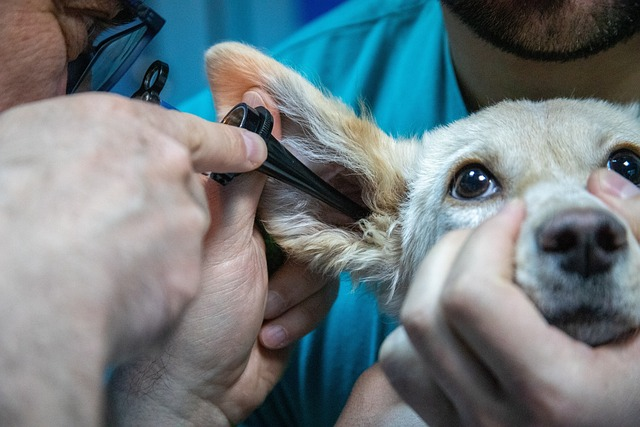
Did you know that it is Itchy Pet Awareness Month? We humans suffer from primarily respiratory signs such known as "hay fever" while our pets suffer from "skin fever". Persistent itching, incessant licking of their paws, rubbing of the face and ears, and sometimes painful sores and hot spots necessitating a vet visit. Once you understand better what the trigger is, then treating your dog's itchiness can be geared at the cause.
In this blog series, we will shed light on the most common allergies and causes of itching in dogs and cats. We will explore the most common types of allergies and how they can be differentiated. The main causes of allergies that can lead to itching in pets include flea allergy dermatitis, environmental allergies/atopic dermatitis, and food allergies.
By understanding the signs, areas affected, and seasonality pet owners can better identify and address the underlying causes of their pet's itching. We will also cover traditional Western medicine treatment of allergies and suggest holistic alternatives as well in the next installments.
In week one we will provide an overview of the three major types of allergies and how they are differentiated. In week 2 we will review the role of nutrition in the management of food allergies. In week 3 we will review environmental allergies. Finally, in week 4 will review flea allergies and ways to deter them on our pets as well as in our homes.
What is the most common cause of itching in dogs and cats?

Flea bite allergies are the most common type of allergy in dogs and cats. Flea saliva is a common allergen that can cause intense itching, especially in sensitive pets. Flea bites can result in small, red bumps or rashes, typically concentrated around the base of the tail, groin area, and back.
Cats classically get what is called miliary dermatitis, which feels an itchy dog, like little scabby bumps on the neck and back.
Sarcoptic mange insect bites
Another parasite caused by microscopic mites is Sarcoptic mange. This type of mange causes intense itchiness. There is also hair loss and severe itching around the face, belly, and ears. When the pinna (external ear) of an animal with sarcoptic mange is manipulated or gently pinched, the animal may exhibit an intense and excessive scratching with a back leg. If sarcoptic mange is suspected, it is crucial to confirm the diagnosis with skin scrapings. This is a consideration for dogs that are boarded or frequent dog parks.

Why is my dog itchy when he has no fleas?
Just because you do not see them does not mean they are not there! And remember, they mostly live in the environment and not on your pet, so you can't entirely rule them out! And cats are so fastidious that they usually groom them off quickly. Fleas transmit tapeworms to your pet, so this is a telltale sign of fleas as your pet would need to ingest the flea when they are grooming to contract them.
Environmental allergens are the second most common cause of itchy skin
Environmental allergens include pollen from trees, grasses, and weeds, and molds which can trigger itching in pets.

Pets can be allergic to dust mites
Dust Mites thrive in bedding, carpets, and upholstery, and their presence can cause itching, particularly on the belly and feet. I have also seen dogs exhibit nasal congestion from dust mites. Make sure your bedding is regularly washed and consider changing it out if it could have potential allergens such as cedar, wool, or synthetic fibers.

Causes of Contact Allergies
Contact dermatitis can occur with pollens and resins from plants, topical medications (ear, eye, shampoos), household cleaners, fibers/bedding, detergents, cat litter, flooring, highly chlorinated water
Is it a Food Allergy?

Food allergies can trigger itching and skin problems in pets. Symptoms may include chronic ear infections, gastrointestinal upset, and itchy skin. Pets most typically react to proteins but can develop allergies to medications, preservatives, and dyes.
In our next blog installment, we will focus on true hypersensitivity to foods and the only diagnostic tool that has been validated to diagnose them.
Co-Occurrence of Allergies:
It is not uncommon for pets to have multiple allergies simultaneously.
Flea allergy dermatitis can coincide with environmental allergies, amplifying the itching and inflammation.
Pets with food allergies may also be prone to environmental allergies and develop secondary bacterial or yeast infections.
Seasonal vs. Constant Allergies:
Some allergies exhibit seasonal patterns, while others persist throughout the year.
Environmental allergies, such as pollen or mold allergies, often occur seasonally when particular allergens are abundant.
Fleas can be a year-round problem in warmer climates or indoor environments, resulting in constant itching.
Food allergies are typically constant and can affect pets regardless of the season.
Unique Manifestation in Cats:

Cats have unique characteristics when it comes to allergies. Unlike dogs, cats tend to develop allergies that primarily affect the skin, leading to excessive grooming, hair loss, and scabs, cats can experience respiratory symptoms, such as sneezing and coughing, as a result of environmental allergens.
Table: Summary of Allergy Types, Seasonality, Affected Areas, and Symptoms
Understanding the different types of allergies and their specific characteristics can be incredibly helpful for pet owners when seeking veterinary assistance. The table below summarizes allergies based on seasonality and areas affected, and symptoms. Considering these factors and sharing this information with your veterinarian leads to a faster and more accurate diagnosis.
| Allergy Type | Seasonality | Affected Areas | Symptoms |
| Flea Allergies | Year-round | Base of tail, groin, back | Small red bumps, rashes, intense itching |
| Environmental | Seasonal | Face, paws |
Sneezing, watery eyes, itching, red/inflamed, irritated skin, belly feet Skin infection with red/inflamed skin, frequent scratching of face, belly, and licking of paws |
| Food Allergy | Year-round | Ears, gastrointestinal |
Chronic ear infections, upset stomach, itchy skin Appears similar to environmental allergies but may only manifest as ear infections, rarely gastrointestinal signs |
What about skin infections?
Bacteria and yeast typically flourish secondary to an allergy. The incidence of a primary bacterial or yeast infection is extremely low and mostly seen in the severely immunocompromised. Always look for an underlying cause and avoid repeatedly using antibiotics. Although they may sometimes be indicated, not looking for an underlying cause will lead to repeated and unnecessary use. Many veterinarians are turning to topical treatments for skin allergies as bacteria become more and more resistant.

Can my pet's allergy be cured?
There is always a threshold that a pet with allergies will reach that triggers the itching. Formulating a plan of attack to lower that threshold with avoidance of allergens or calming an overactive immune system will help lower the threshold and manage, but not cure the allergy.
Underlying Endocrine Disease can contribute to dog itching
The most common symptom seen in low thyroid function is skin conditions such as hair loss, and bacterial and fungal infections. There may also be weight gain, but not always.
Another endocrine problem in dogs is Cushing's disease which causes immune system suppression leading to a dog's skin being susceptible to bacterial and fungal infections.
Conclusion
Understanding the cause of allergies is crucial in developing the best strategy to manage them effectively. By identifying the specific allergen and its seasonality, as well as the areas of the dog's body most affected, pet owners can collaborate with their veterinarians to implement targeted interventions and decrease the inappropriate use of medications like steroids and antibiotics. With accurate diagnoses and proper treatment, pets can experience relief from their allergies, leading to improved quality of life and overall well-being. So, let's prioritize understanding the underlying causes of allergies, so we can provide our furry friends with the care they truly need.










